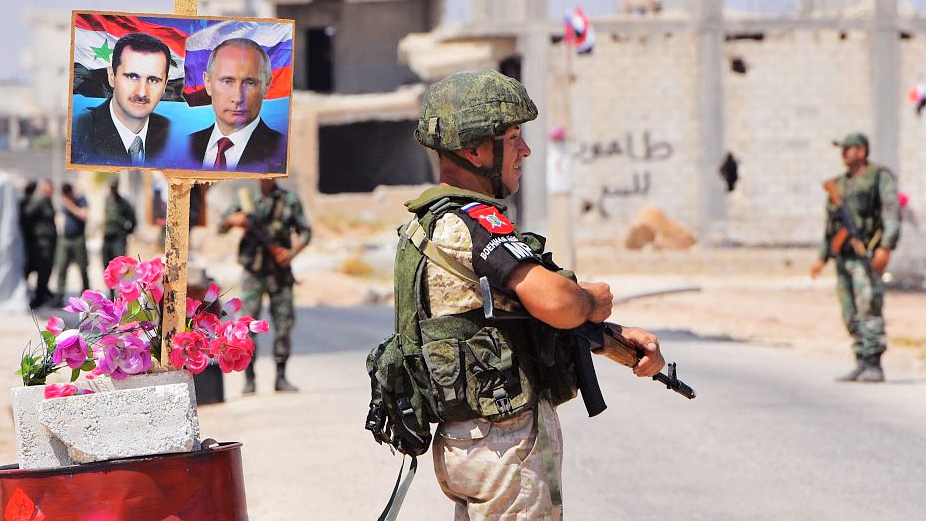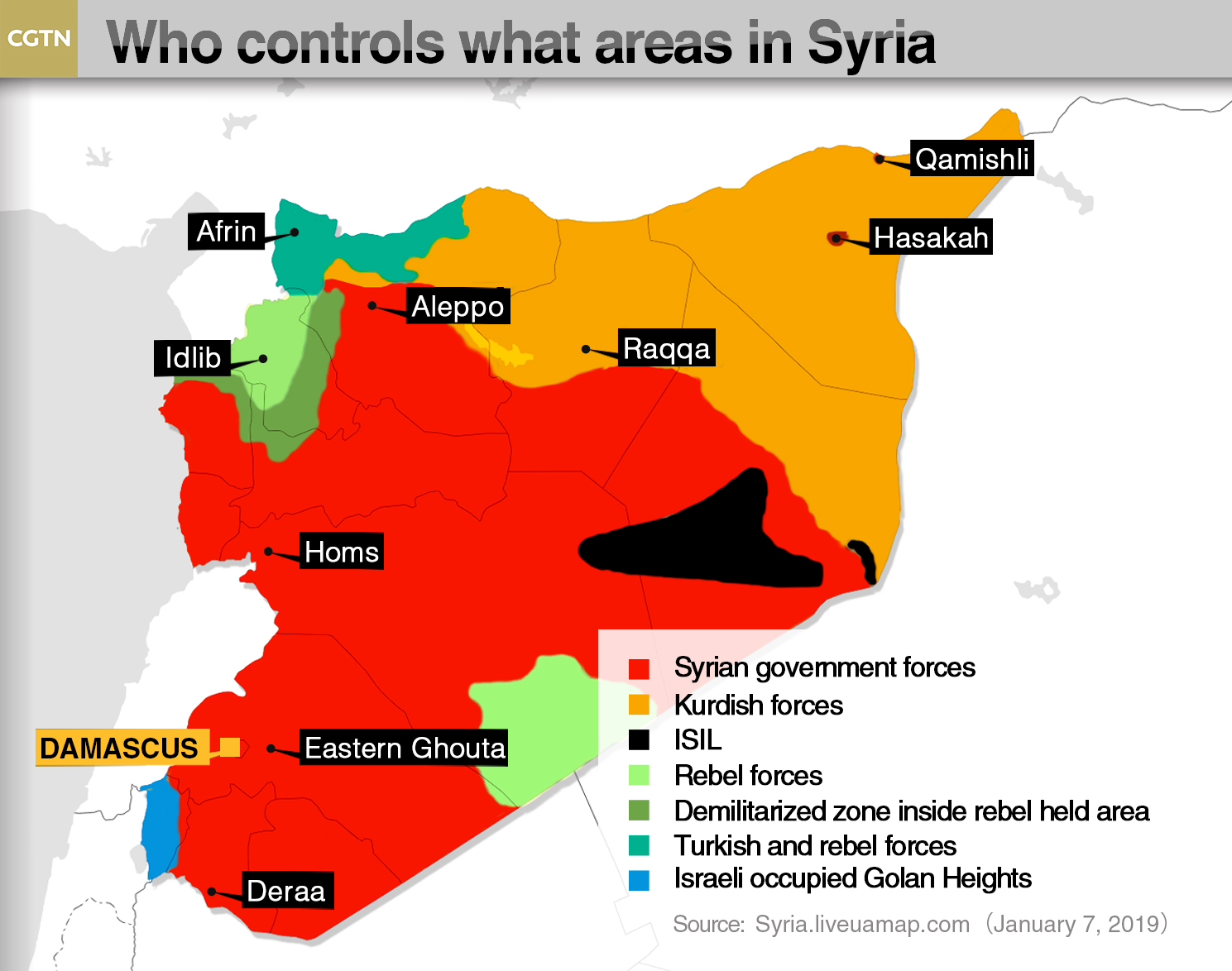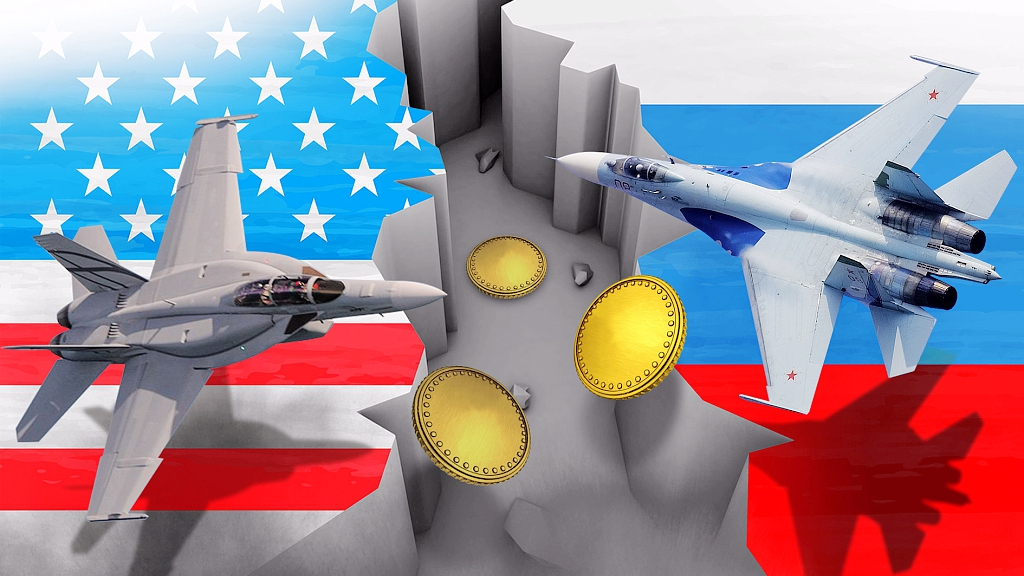The U.S. decision to abruptly withdraw from a war-ravaged Syria has disrupted the geopolitics in the Middle East, with Russia emerging as the biggest winner from the eight-year turmoil, according to many analysts who believe that Moscow is poised to expand its influence along with other regional players such as Iran and Turkey.
"Russia has been a big winner in Syria, where the commitment of 5,000 troops and a few dozen fixed-wing aircraft have saved the regime, dealt a blow to Islamist groups (ISIL) with links to Chechnya, secured its only naval and air bases in the Mediterranean, given battlefield experience to its troops, and re-established Russia as a military force for the first time since the end of the Cold War," according to an analytical piece authored by Jon B Alterman and Will Todman, senior geostrategists at the Washington-based Center for Strategic and International Studies (CSIS).
They also argued that the sudden withdrawal of U.S. troops would mean that the Russians will now be deciding on their military future in Syria independently and only in consultation with the Bashar Assad government, without any meaningful input from the U.S.
Ankara's dependence on Moscow
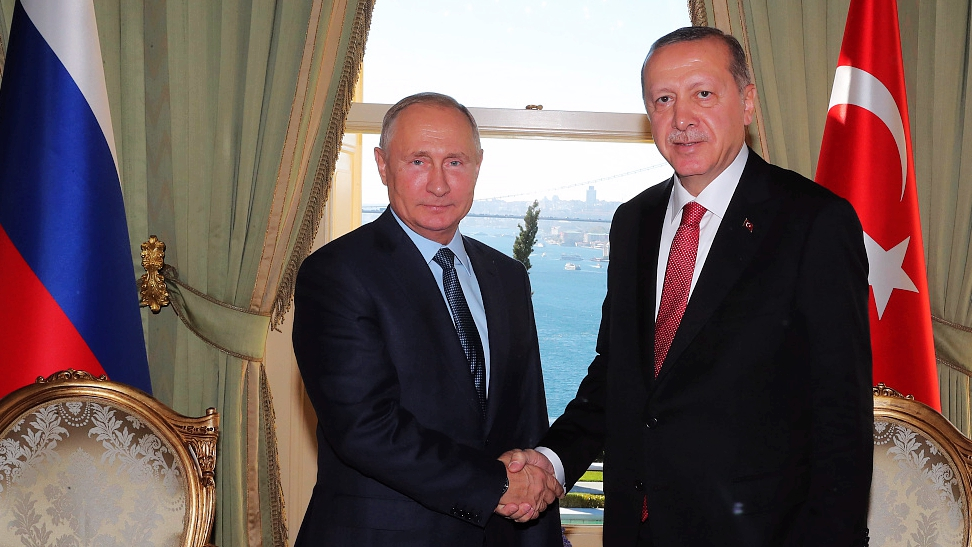
Turkish President Recep Tayyip Erdogan (R) and his Russian counterpart Vladimir Putin during their meeting in Istanbul, Turkey, October 27, 2018. /VCG Photo
Turkish President Recep Tayyip Erdogan (R) and his Russian counterpart Vladimir Putin during their meeting in Istanbul, Turkey, October 27, 2018. /VCG Photo
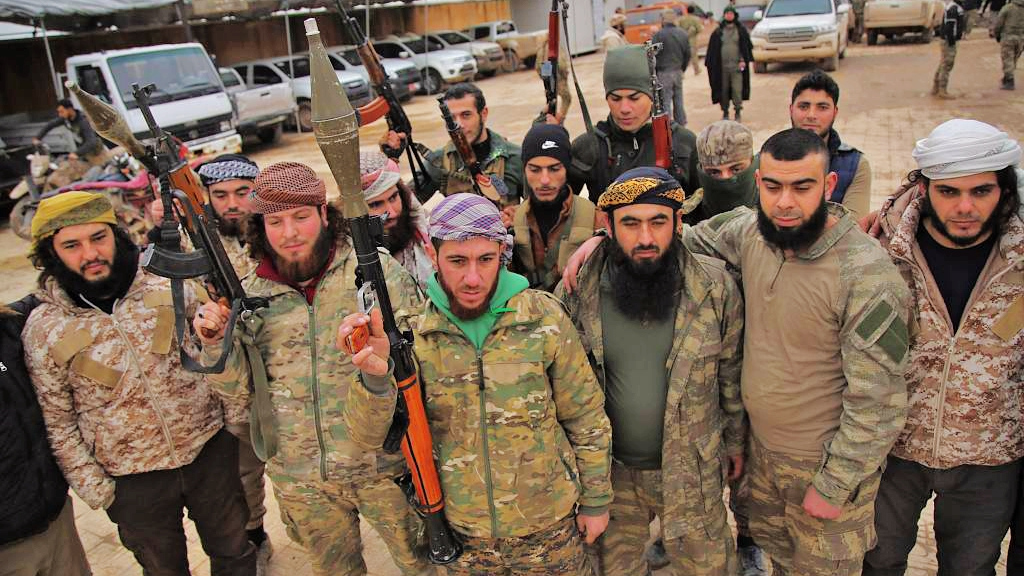
Turkish-backed Syrian fighters gather near the town of Tal Hajar in Syria's Aleppo Province, a few kilometers from areas controlled by a Kurdish-led coalition, January 16, 2019. /VCG Photo
Turkish-backed Syrian fighters gather near the town of Tal Hajar in Syria's Aleppo Province, a few kilometers from areas controlled by a Kurdish-led coalition, January 16, 2019. /VCG Photo
Trump's impulsive decision has not only given Russia an opportunity to be more proactive in Syria but also put Moscow in a position from where it could possibly play a key role in determining the strategic action of other regional players such as Turkey vis-à-vis Damascus.
"One of the most unexpected fallouts of the withdrawal decision is that it left Turkey out in the cold and made it much more dependent on Russia for its next moves," reckoned Marc Pierini, a visiting scholar at Carnegie Europe, where his research is focused on Turkey and the Middle East.
The U.S. had backed the Syrian Kurdish People's Protection Units (YPG) for years in its fight against the Islamic State and holding on to Syrian territories north and east of Euphrates river. Ankara considers YPG as the Syrian wing of Kurdistan Workers Party (PKK), a Kurdish militant group that operates in Turkey. Quite naturally, the U.S.-YPG alliance created
a significant rift between Washington and Ankara, who otherwise are allies in NATO.
At first sight, Trump's decision to withdraw from Syria, and therefore by default leaving the YPG Kurdish fighters in the lurch, appeared to play into Ankara's hands, but that as it turns out is only the half-truth.
"In reality, Turkey's intention to invade northern Syria east of the Euphrates to divide Kurdish-held areas into three separate entities – Afrin, now occupied by Turkey with Russia's consent, Kobani, and Qamishli – is subject to Russian authorization, which, if it is positive, will perhaps come without permission to use air cover," Pierini elucidated.
Not a surprise then that Turkish President Recep Tayyip Erdogan has flown into Moscow on Wednesday to meet his Russian counterpart Vladimir Putin ahead of Ankara's planned offensive against the YPG Kurdish militia inside Syria.
Erdogan said he would discuss with Putin the creation of a Turkish-controlled "security zone" in northern Syria, suggested by Trump. The U.S.-allied Kurdish group, which controls much of northern Syria, has rejected the idea. Moscow is likely to oppose the plan, with Russian Foreign Minister Sergey Lavrov last week saying Damascus must take control of the country's north.
As of now, the fate of the Kurdish group and the Syrian territory it controls hangs in balance with Russia believed to be holding the strings that would decide the eventual outcome.
'No U.S.-Soviet power match this'
While this may establish Moscow as the most dominant global player in the Middle East, some experts emphasize that Russia, drawing on its history from the Soviet era, has no appetite to take such a role in the region.
"Russia is not the Soviet Union. It does not see the Middle East as a region that it can dominate. Displacing the United States from the leading position in the Middle East is way above Russia's capacity, and keeping the region in its sphere of influence is way above Russia's resources," Dmitri Trenin, director of the Carnegie Moscow Center, opined.
"Russia has certainly benefited from waning U.S. interest in the Middle East as, absent an active America, Russia can act with more confidence and ease. But it is not Russia that engineered the major shift in U.S. foreign policy in the first place," he reasoned, adding that the U.S., starting from the presidency of Barack Obama, has been pursuing a policy of retrenchment to strengthen the home base and cut back on foreign commitments.
"President Donald Trump has stayed the course with his characteristic gusto and bravado," he quipped, adding: "What we are observing now is not a replay of the U.S.-Soviet power matches of the period between the 1960s and the 1980s."
Emphasizing that Moscow's rules have changed since the Soviet-era, Trenin said: "The Soviet Union was heavily engaged around the Middle East in spending money on an ideological and geopolitical project, the Russian Federation is active in the region trying to make money. The Soviet Union was about an idea. Russia's idea is about Russia itself."
With regards to the Middle East, Russia continues to exercise restraint both in terms of the ambitions it sets for itself in the region and the resources it commits, he said.
"Russia's interests include keeping the terrorists away, and down; attracting technology and investment; expanding access to the region's markets, from arms to agricultural products. Trying to emulate the practices of the former Soviet Union or the United States would be detrimental to the Russian self-interest," Trenin added.
Other winners and losers
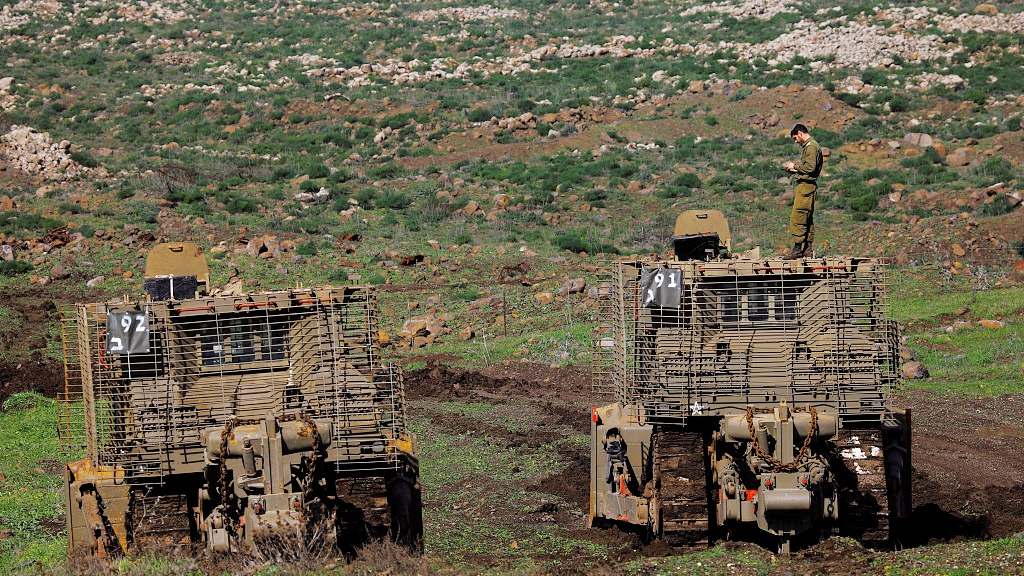
Israeli soldiers stand atop armored bulldozers in the Israeli-occupied Golan Heights, January 21, 2019. /VCG Photo
Israeli soldiers stand atop armored bulldozers in the Israeli-occupied Golan Heights, January 21, 2019. /VCG Photo
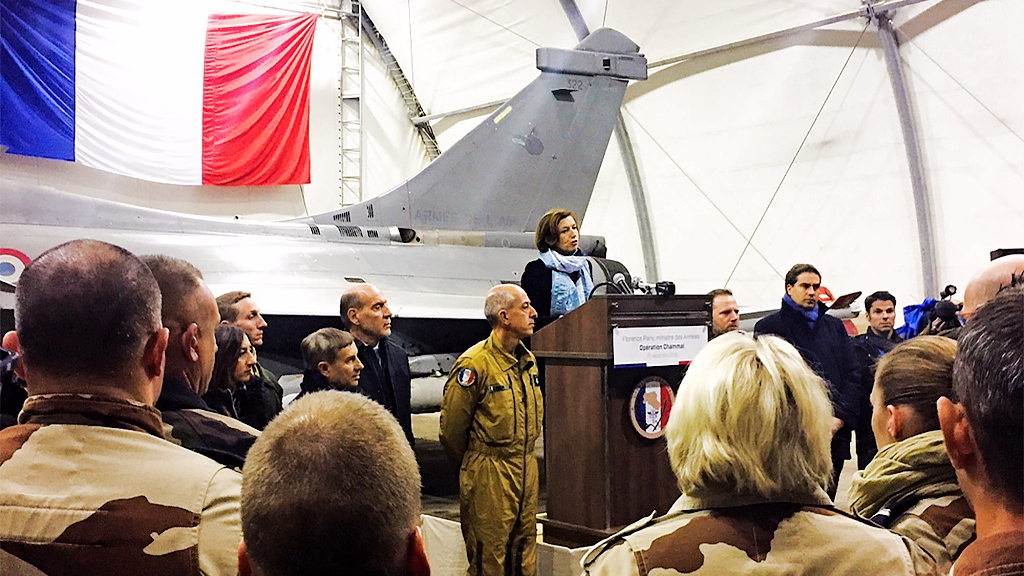
French Defense Minister Florence Parly (C) interacts with French troops at the Royal Jordanian Air Force's Prince Hassan Air Base (H5), northeast of Amman, December 31, 2018. /VCG Photo
French Defense Minister Florence Parly (C) interacts with French troops at the Royal Jordanian Air Force's Prince Hassan Air Base (H5), northeast of Amman, December 31, 2018. /VCG Photo
Meanwhile, many felt that Iran and the Syrian President Assad have also emerged as winners in the multilateral regional tug of war, whereas Israel and other Western U.S. allies such as the UK and France are the chief losers following the U.S. decision.
"The U.S. withdrawal helps consolidate Iran's ground links between Iran and its allies in Lebanon and gives Iran an unobstructed path to retaining a significant military and intelligence presence in Syria," stated the CSIS experts Alterman and Todman.
They also felt that the Assad government will be now able to expand its control over the entire country, including the oil-rich areas that had been hosting U.S. troops, and have an unconstrained hand reimposing its jurisdiction.
Both Alterman and Todman ranked Israel among the most important losers, "as Israel had been deeply concerned at the permanent presence of Iranian forces across the border." The CSIS analysts also foresaw "devastating consequences" for U.S. regional allies such as Jordan and Lebanon.
Trump's decision also leaves hanging American core allies in NATO, especially France and the UK, according to Pierini. "France, in particular, has about 200 troops on the ground, compared to some 2,000 U.S. troops. The French and the Americans operate in a closely coordinated manner and France's contingent, by virtue of its smaller size, largely depends on its U.S. colleagues for logistics, including a French withdrawal when that time comes," he observed.
While the jury is still out on the fate of Syria and its exact fallout on regional players, experts foresee two likely scenarios for northeastern Syria, ranging from a Turkish invasion to the Kurdish fighters and Assad government taking control over the region after successful political negotiation and integration.
Only time will tell which of these scenarios become a reality.
(Cover: Russian and Syrian forces stand guard near posters of Syrian President Bashar al Assad and his Russian counterpart Vladimir Putin at the Abu Duhur crossing on the eastern edge of Idlib Province, Syria, August 20, 2018. /VCG Photo)

